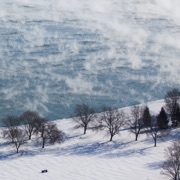AccuWeather meteorologists are available 24/7 to provide further insights and updates on evolving weather conditions. Please contact pr@accuweather.com during regular business hours, or support@accuweather.com or call AccuWeather’s Media Hotline at (814)-235-8710 at any time to arrange interviews with AccuWeather experts or to request the most updated graphics for print or broadcast.
Relief on the Horizon as Heat Wave Bakes Northeast & Midwest
June 19, 2024
> AccuWeather RealFeel® Temperatures will top 105 degrees in multiple cities
from Texas to West Virginia this week
> The extended heat wave could impact farming operations, the power grid
and heat-sensitive infrastructure
> Areas in the mid-Atlantic and Ohio Valley are at risk of a ‘flash drought’
developing
AccuWeather Global Weather Center – June 19, 2024
AccuWeather expert meteorologists say a cold front on the move this weekend will bring an end to the intense heat wave that is impacting more than 135 million people across much of the Northeast and Midwest.
The cold front will usher in cooler air with less humidity starting Saturday across the northern Plains and Upper Midwest. The front will then push through the Ohio Valley on Sunday and arrive in the Northeast and mid-Atlantic on Monday.
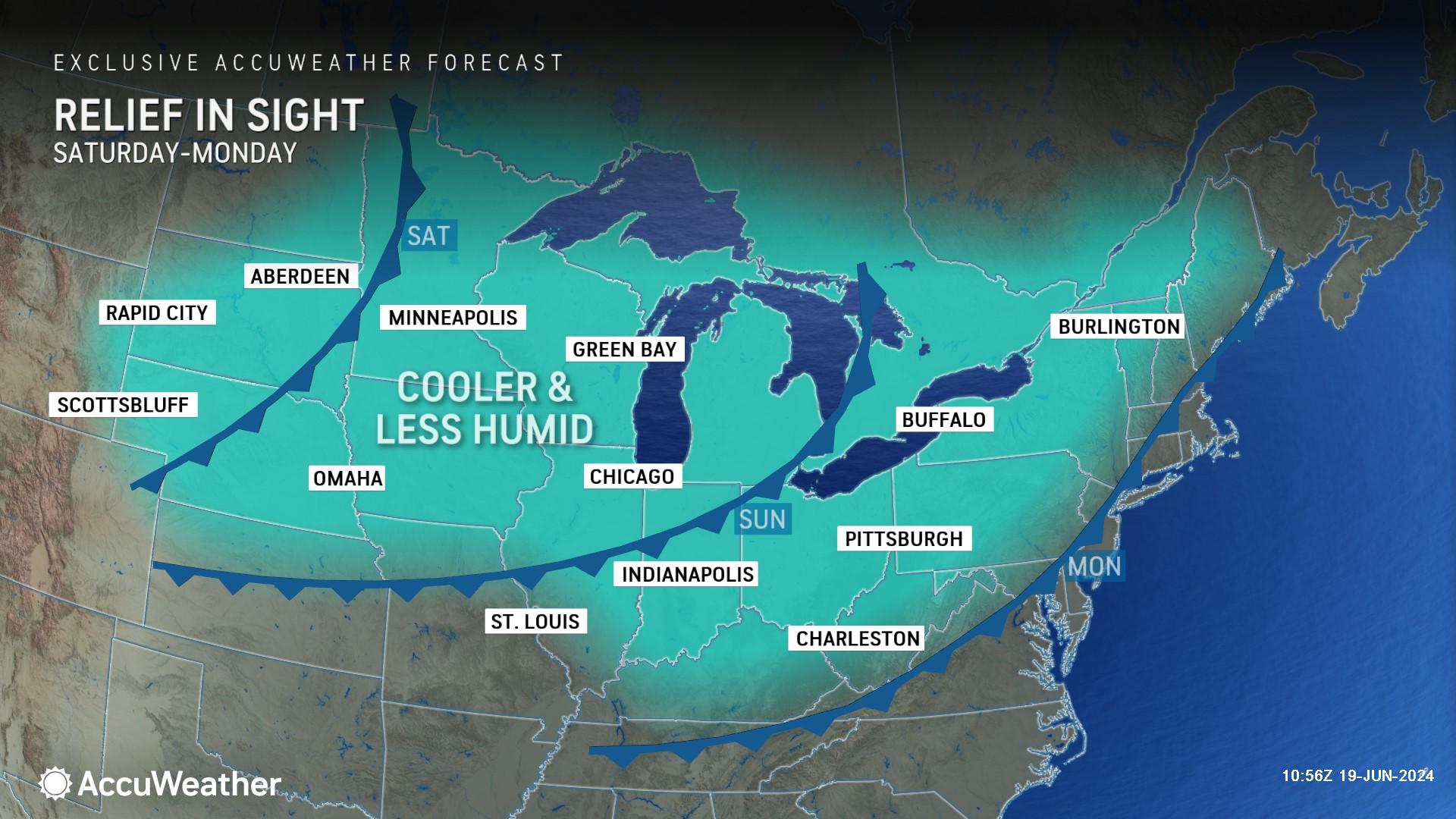
AccuWeather first alerted the public more than a week ago about the threat of widespread summerlike heat building in the region. The duration and intensity of this heat wave in the Northeast is uncommon in the month of June. AccuWeather expert meteorologists say this is the most intense June heat wave that some areas have experienced in decades.
High temperatures will top 90 degrees for a week or more in major cities including Chicago, Detroit, Pittsburgh, Washington, D.C., Baltimore, and Philadelphia. AccuWeather expert meteorologists say daily high records dating back to the 1920s will be challenged.
The exclusive AccuWeather HeatWave Counter and Severity Index™, which measures heat waves by duration and intensity, quantifies the heat wave in New York City as "moderate," Chicago as "strong" and Philadelphia as "strong."
“This is the strongest heat wave to occur in Philadelphia during the month of June since 2008,” said Dan DePodwin, AccuWeather’s Senior Director of Forecasting Operations. “Although this heat wave may not feature many days with triple-digit temperatures, the prolonged nature of it and the lack of cooling at night can cause significant health impacts. The impact of heat on people's bodies builds each day the heat wave lasts. The greatest impacts from hospitalizations and deaths often happen on the last day of the heat wave or even the day after the heat eases.”
DePodwin says this June heat wave is dangerous for outdoor workers and vulnerable populations without access to air conditioning.
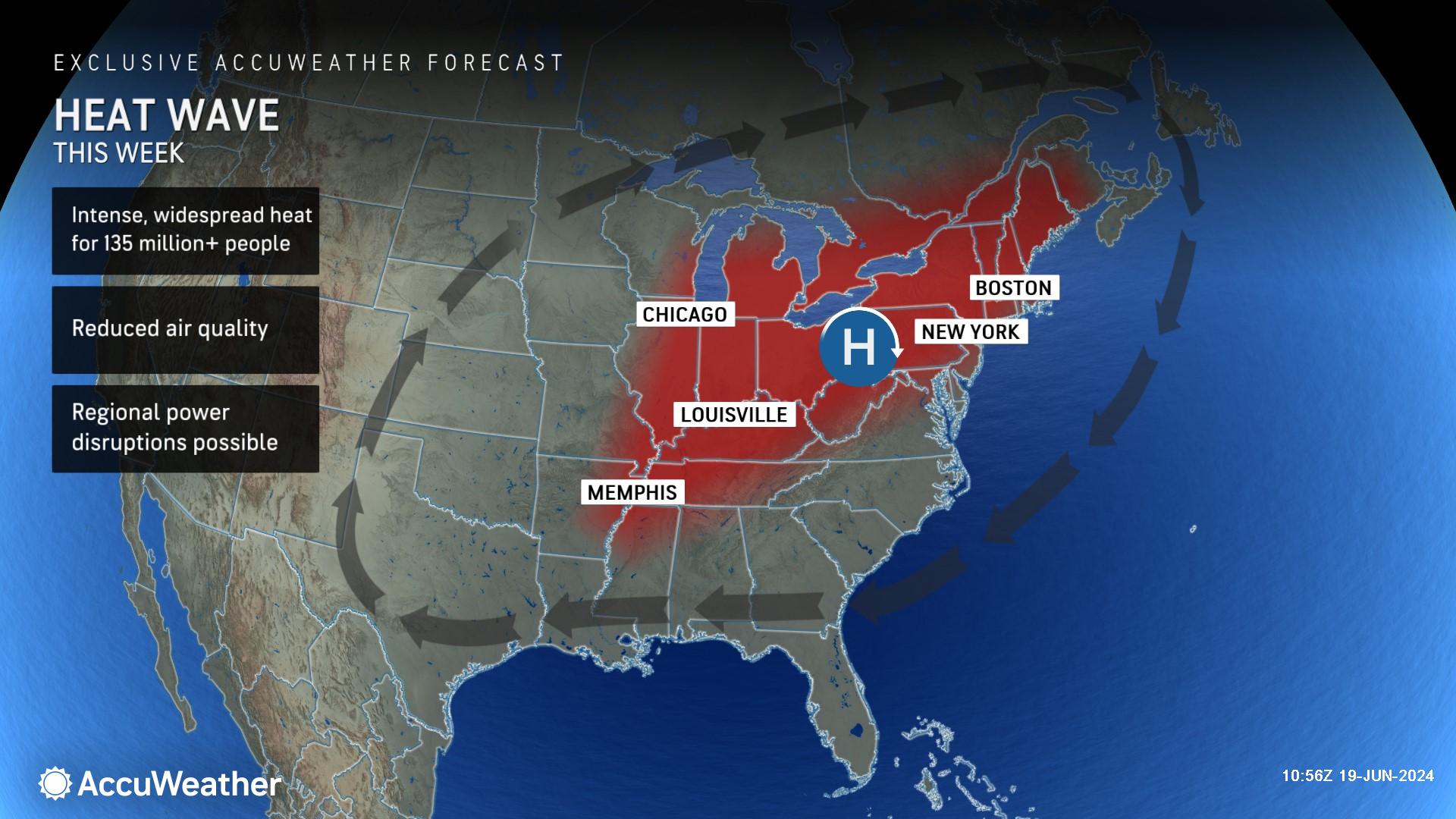
“There will be little overnight relief from the heat as temperatures fall only into the mid-70s in many places,” said DePodwin. “This does not allow buildings without air conditioning to cool much before the next day's heat.”
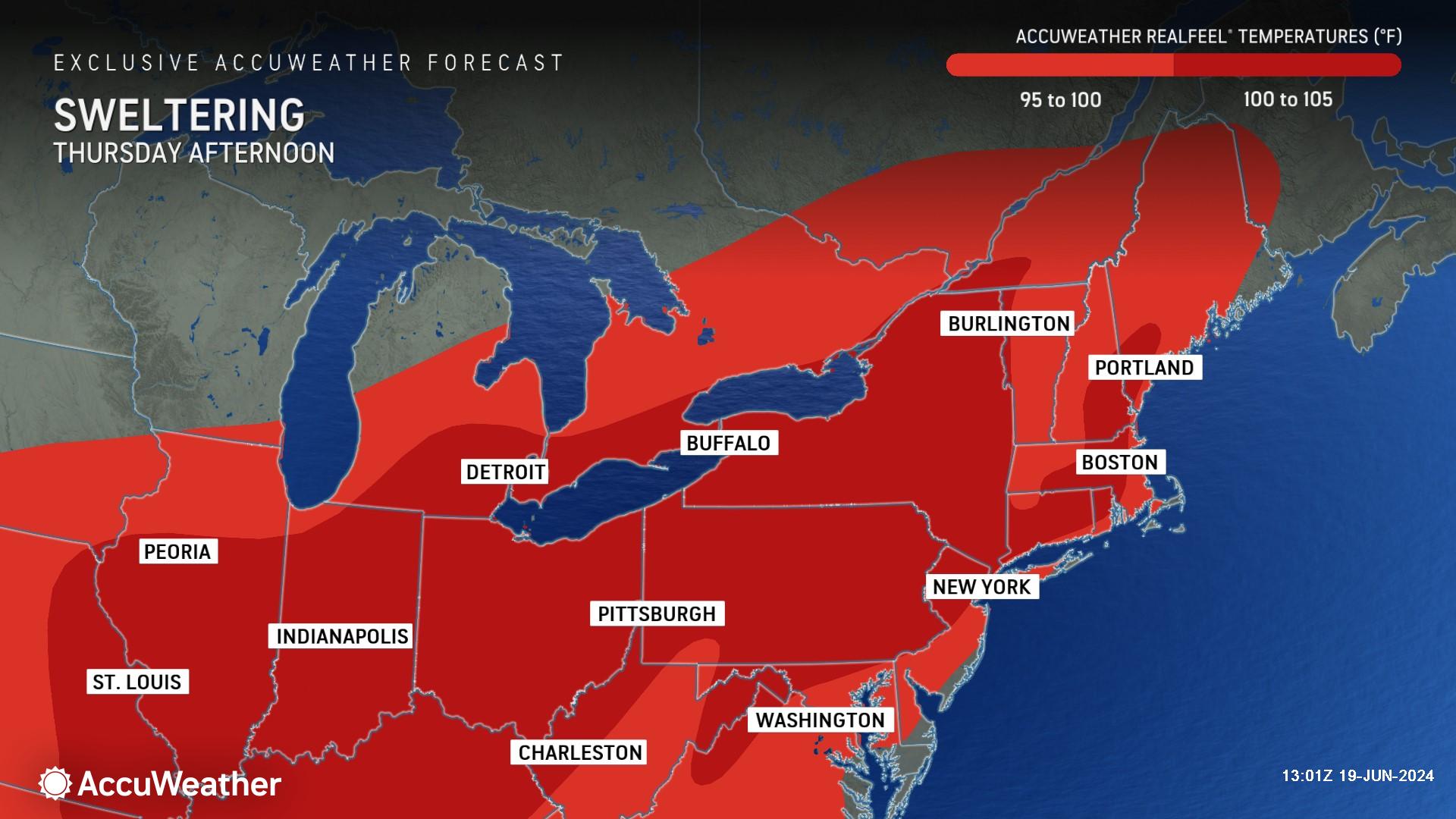
The sweltering heat will be felt from St. Louis, Missouri, to Burlington, Vermont, on Thursday with AccuWeather RealFeel® Temperatures approaching 100 degrees.
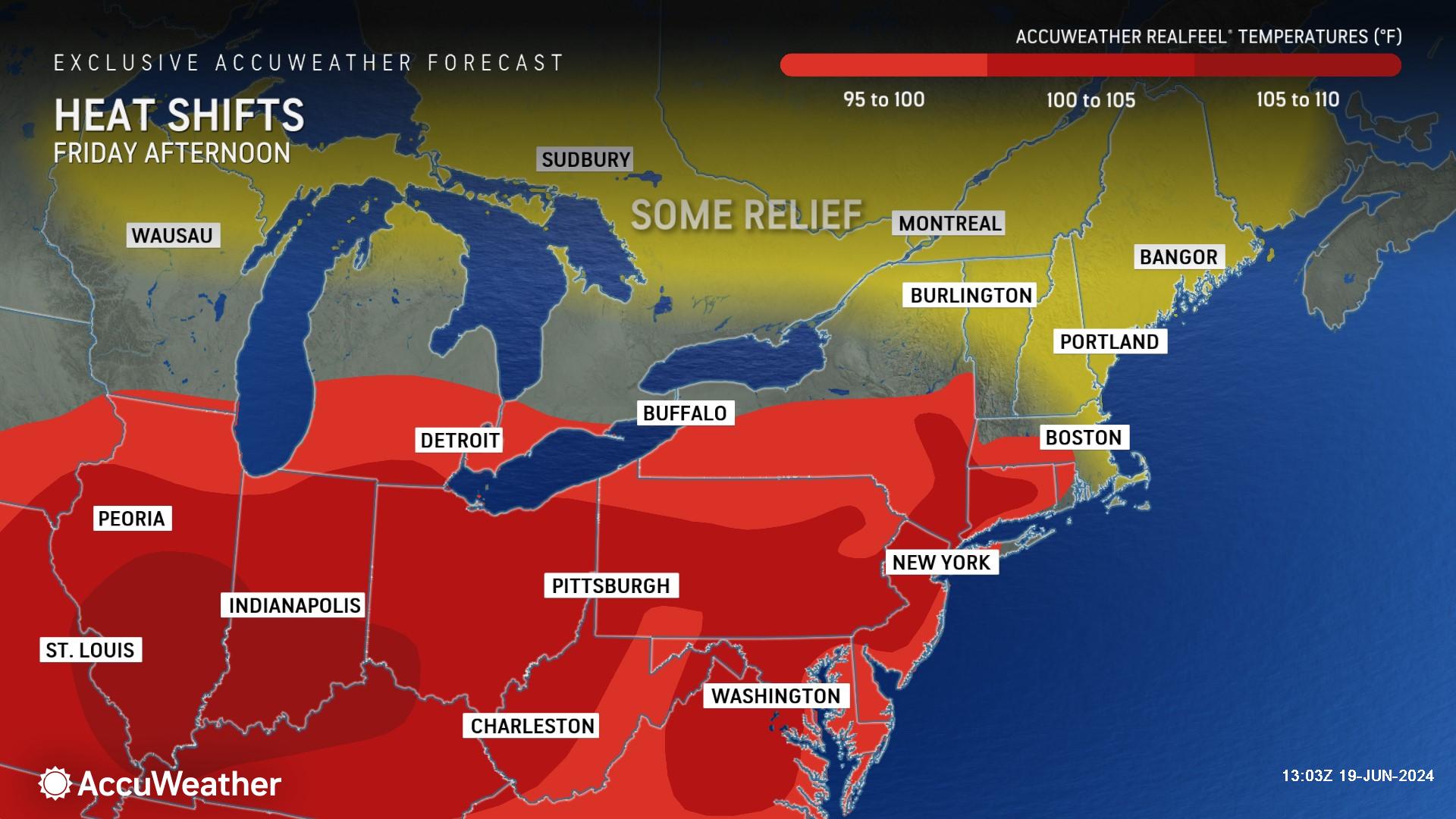
The heat will intensify in parts of the Midwest on Friday. The AccuWeather RealFeel® Temperature in St. Louis, Missouri, will flirt with 105 degrees.
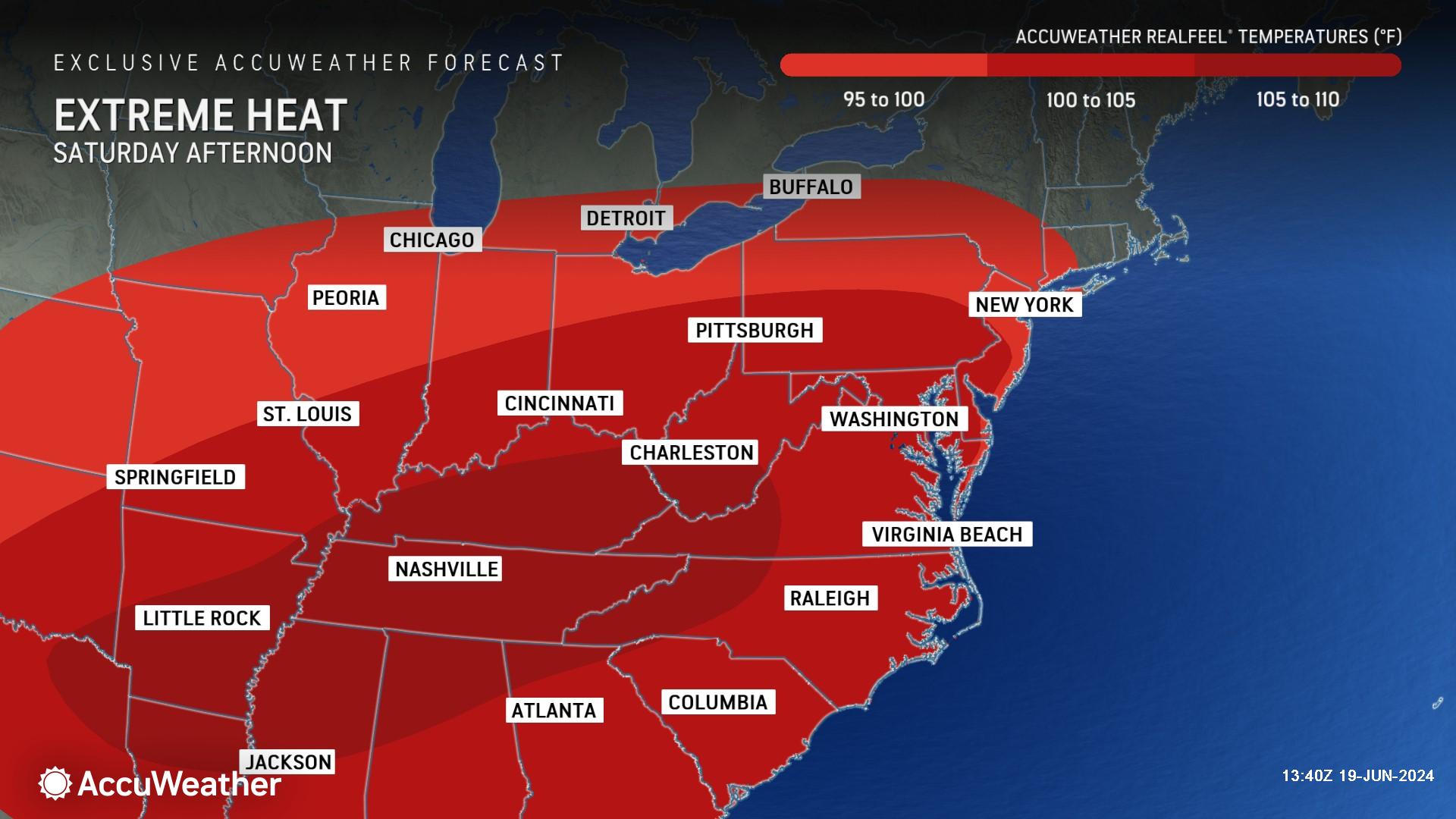
The intense heat will shift to the south on Saturday. AccuWeather RealFeel® Temperatures from Little Rock, Arkansas, to Nashville, Tennessee, and Charleston, West Virginia, are forecast to reach or surpass 105 degrees.
Heat will expand across much of the Southeast on Sunday with AccuWeather RealFeel® Temperatures surging above 105 degrees.
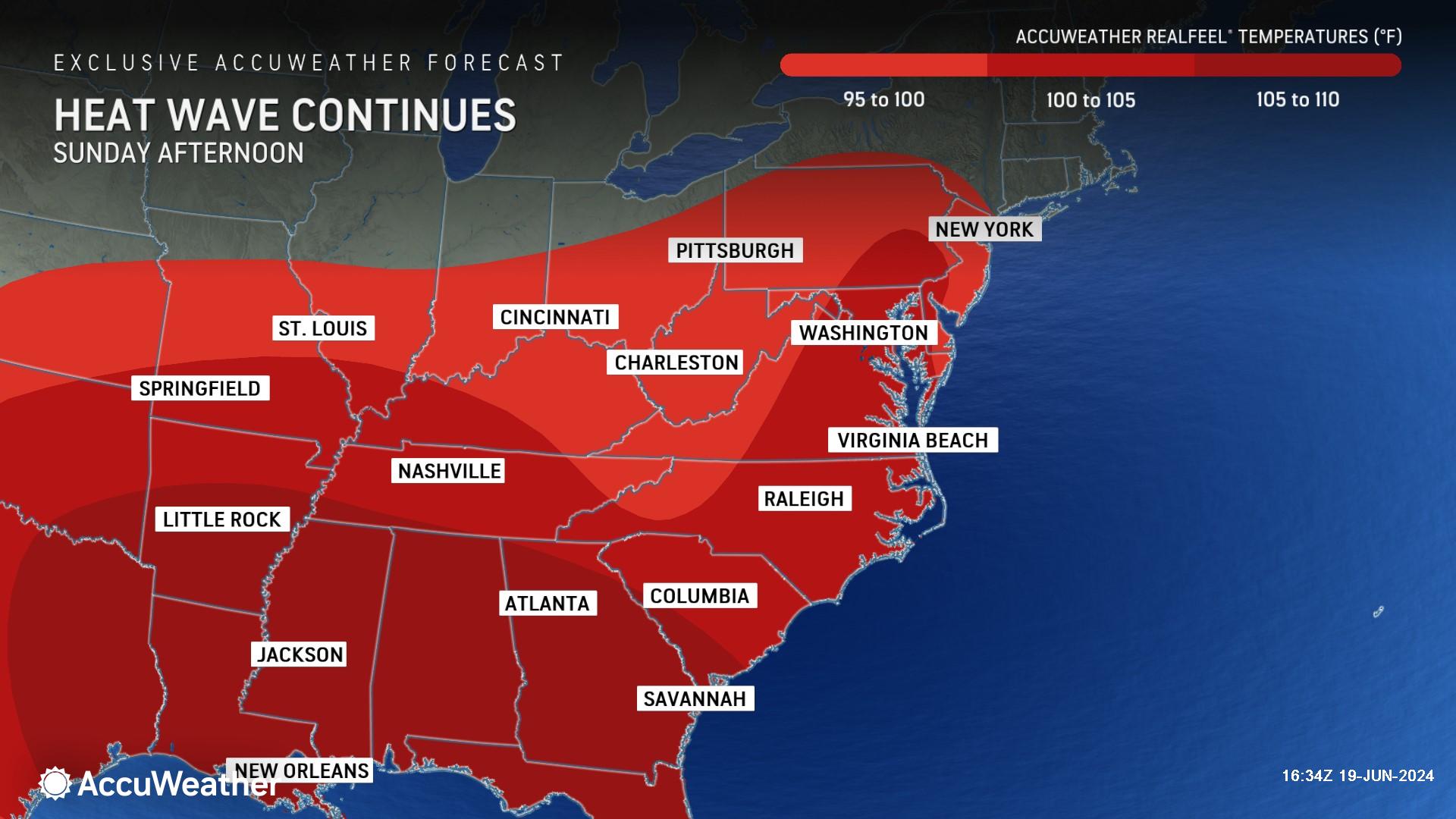
Impacts on Infrastructure, Farming & Outdoor Workers
AccuWeather Agriculture Expert Dale Mohler says the heat is taking a toll on agriculture workers and farming operations across the Northeast and Midwest.
“The intense heat and humidity will be centered over the eastern half of the Midwest corn and soybean belt this week, stressing this major crop area for the first time this growing season. The heat and dryness will impact the corn crop the most as it's approaching the month of July, which is the period of greatest water need,” said Mohler. “Areas of rain will bring an end to the heat wave over the Midwest this weekend, but at least a few days of hot weather may return later next week. Additional stretches of hot weather expected across the Midwest during the month of July will continue to stress major crops grown in the Midwest.”
There are currently very few areas in the Northeast, mid-Atlantic or Ohio Valley reporting abnormally dry or drought conditions, but AccuWeather Meteorologist Jake Sojda says that could change by next week.
“Due to the prolonged heat wave into this weekend, a flash drought could develop in parts of the Ohio Valley and mid-Atlantic. A flash drought is simply defined as ‘the rapid onset or intensification of drought’ but depends on typical climatological conditions in a certain area. It is caused by a stretch of lower-than-normal precipitation combined with any combination of abnormally high temperatures, winds, and solar radiation,” explained Sojda. “As this heat wave nearly coincides with the summer solstice on June 20, solar radiation is at the most intense portion of the summer across North America. Under the dome of high pressure causing the heat wave, rain will be sparse and largely non-existent through this weekend in parts of the Ohio Valley into the mid-Atlantic. The combination of the most intense solar radiation of the year, no rain, and very high temperatures will all work to lead to very high evaporation rates and soil drying out very quickly.”
AccuWeather expert meteorologists say farmers and gardeners in this region will likely need to increase irrigation during the hottest days of the heat wave.
“Shallow-rooted plants, which includes most produce planted annually, can be very susceptible to flash drought as the near-surface soil moisture is quickly depleted without artificial irrigation. This can have a large impact on agriculture yields later in the season, especially since much of the produce planted in the Ohio Valley and Northeast is still young, tender, and even more shallow-rooted this time of the year, making it even more susceptible,” said Sojda. “Flash droughts seldom develop into longer-term or seasonal droughts, but the impacts to local agriculture can still be felt.”
The longevity of the June heat wave could also strain the electric grid due to the growing demand to power air conditioners inside millions of homes. Extreme heat can also stress data centers and other heat-sensitive businesses that require extensive cooling.
The relentless heat will pose a higher public safety risk in parts of southeastern Canada, where air conditioning is not as common in many homes and businesses.
"Southern Quebec will experience temperatures in the low to mid-90s F (32-36 C). Adding to the challenge is high humidity, which is uncommon in this part of Canada," said AccuWeather Senior Meteorologist Tyler Roys.
AccuWeather expert meteorologists warn that poor air quality combined with relentless heat can raise the risk of heat-related illnesses.
"Due to the stagnant weather pattern this week, air quality is anticipated to deteriorate significantly, particularly along the Interstate 95 corridor from Washington, D.C., to Boston,” said Roys. “Metropolitan areas such as Cleveland, Cincinnati, Indianapolis, and Montreal, Quebec, are also at risk.”
Although a break from the heat is forecast this weekend, AccuWeather long-range forecasters warn that intense heat may return to parts of the Northeast and Midwest for the week of Independence Day.
Additional AccuWeather Resources:



